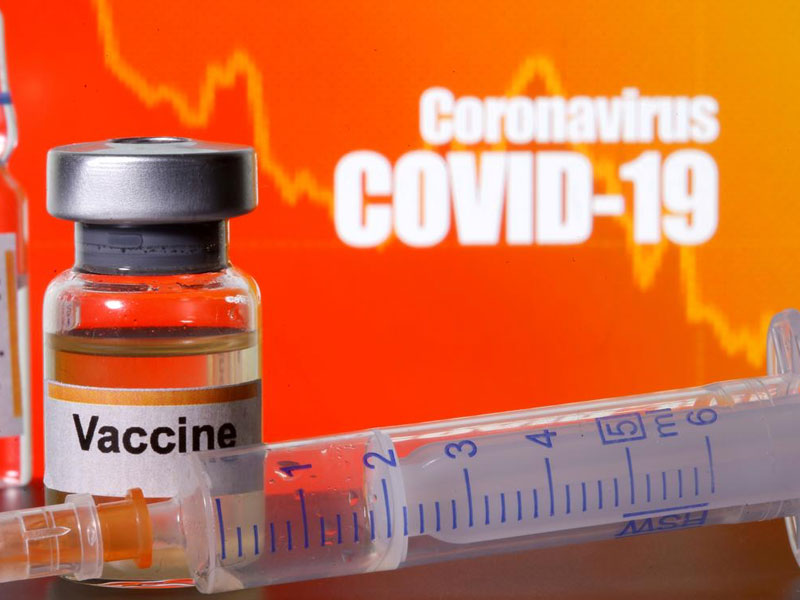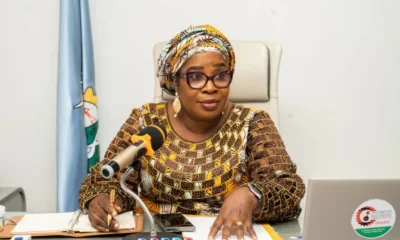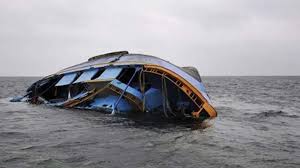Health and Safety
Trajectory of COVID-19 Pandemic: Uncertainties, Hope

Most Nigerians are still in awe as to whether the COVID-19 pandemic still trends or has been laid to rest in their respective communities.
Such uncertainties heighten as the infection rate declines, and protocols are relaxed with less attention given to COVID-19 by many countries, including Nigeria.
Also read: COVID-19: NGO trains health workers on data management
With the advent of the Russia-Ukraine war and the outbreak of the Monkeypox disease in non-endemic countries, interests in COVID-19 appear to have been diverted, at least for a while.
The global health community is racing to provide vaccines for Monkeypox control while countries battle with food shortage issues, fuel crises and global inflation emanating from economic downturn.
Similarly, the COVID-19 epidemiological report by the Nigeria Centre for Disease Control (NCDC) has been reviewed to thrice a week as against a daily report while the epicentre of COVID-19 in Nigeria, Lagos State, barely releases its COVID-19 update like before.
The last COVID-19 update from the state was released on April 24 and this, among other factors, makes concerned citizens continually ponder on whether COVID-19 still exists in countries.
The World Health Organisation (WHO) had on Dec. 31, 2019, announced the detection of pneumonia of unknown cause in the city of Wuhan, Hubei Province, China.
Within a month, cases are reported in five WHO regions, leading the health agency to hold an Emergency Committee meeting of its International Health Regulations on Jan. 30, and declared the 2019-nCoV outbreak a Public Health Emergency of International Concern.
The Committee notes that early detection, isolating and treating cases, contact tracing and social distancing measures in line with the level of risk could assist to stop the virus spread.
On Feb. 11, 2020, it names the virus COVID-19, a choice that will help guard against the use of other names that might be inaccurate or stigmatising.
“We must be guided by solidarity, not stigma.
“The greatest enemy we face is not the virus itself; it’s the stigma that turns us against each other. We must stop stigma and hate,” the WHO Director-General, Dr Tedros Ghebreyesus, tells the global community.
On Feb. 14, 2020, the COVID-19 infection is confirmed in Africa with the first reported case in Egypt, while Nigeria confirmed its first case on Feb. 27, 2020.
On March 11, 2020, WHO declares the COVID-19 outbreak a global pandemic due to its concern by its alarming levels of spread and severity, and the levels of inaction.
The high transmissibility of the virus leads to panic among the global populace with countries affecting measures including lockdown, curfew, travel bans, and many persons broadcasting unverified information on how to prevent infection from the disease.
At the peak of the pandemic in 2020, increased hospitalization, high mortality rate, and shortages in medical supplies including personal protective equipment (PPE) left health workers and other frontline workers dangerously ill-equipped to care for COVID-19 patients.
The global community rises to the challenge with strategic cooperation leading to the formation of the ACT-Accelerator partnership, launched by WHO and partners, to support the fastest, most coordinated, and most successful global effort in history to develop tools to fight disease.
With significant advances in research and development by academia, the private sector, and government initiatives, the ACT-Accelerator secured a way to end the acute phase of the pandemic by deploying the tests, treatments, and vaccines the world needed.
These interventions made the first COVID-19 vaccines possible, although it met with lots of skepticism about their safety and effectiveness.
However, the vaccine helps the world move beyond the fear of COVID-19 and exit lockdowns.
Consequently, borders are reopened, airlines begin operations, and schools and offices resume remote learning and work as the world adjusts to “living with COVID-19”.
Consequently, the director-general of the WHO, at the 2022 World Health Assembly, warns countries against complacency, noting that the COVID-19 pandemic is not over.
Ghebreyesus maintains that a decline in infection figures and deaths does not signify an end to the pandemic while also expressing concern about the COVID-19 spike in 70 countries and low testing rates.
“It is not over anywhere until it is over everywhere. Only 57 countries have vaccinated 70 per cent of their population, almost all of them high-income countries,’’ Ghebreyesus says.
Similarly, the NCDC cautions that COVID-19 is real and not yet over, noting, sadly, that the disease has affected no fewer than 200, 000 Nigerians.
The NCDC also notes that COVID-19 continues to threaten lives and livelihoods, stressing that all necessary precautions should be taken to ensure the safety of lives.
Notably, Dr Iorhen Akase, an infectious diseases physician, complains that the world failed to learn from the COVID-19 experience.
According to him, most people are in a hurry to move on with their lives in disregard to infection prevention control practices in their daily lives and communities.
Akase warns that pandemics and large-scale outbreaks can claim millions of lives, disrupt societies and devastate economies.
He adds that most infectious diseases can be controlled through effective preparedness and constant hand hygiene practice by citizens, advising citizens against letting down their guard.
Also on precautionary measures, Mr Bill Gates, Co-Chair, Bill and Melinda Gates Foundation, cautions against indifference to COVID-19 risks, noting that the pandemic could generate a variant that could be more transmissive and fatal.
Gates says the COVID-19 pandemic created a unique opportunity to improve global preparedness and strengthen health systems against future pandemics.
Specifically, that means improving technology, including vaccines, therapeutics and diagnostics; building up health systems and improving global monitoring of diseases.
As the world continues to respond to COVID-19, health experts stress that preemptive planning and protective measures can help in better management of future pandemics.
They also say that countries with high rates of current immunity and widespread booster uptake will be better protected against COVID-19, just as they call for a continuous response system against infectious diseases.

Health and Safety
We’re Now After Criminal Godfathers In Ondo – Amotekun

The Ondo State Security Network Agency, Codenamed Amotekun Corps, says it is after criminal godfathers as part of efforts at combating crime in the state.
Mr Adetunji Adeleye, State Commander of Amotekun Corps, who said this while addressing newsmen on Tuesday in Akure, explained that the corps had gone beyond arresting criminals alone.
Adeleye, who disclosed that 28 suspects were arrested for different crimes in the state, said the criminal world was evolving, hence, Amotekun would also evolve.
“Amotekun always strives to be ahead of them. We are now after their godfathers and backbones, and the reason is simple.
“We don’t want to relent. Hence, our fight is not against the criminals alone, but against their sponsors.
“So, we are saying that until we uproot them, we won’t have total peace.
“The chain of criminality has to be broken and uprooted. We need the socio-economic growth of the state to continue to increase.
“By the intervention of Amotekun, the Internally Generated Revenue (IGR) of Ondo State increased by over 500 per cent in 2023.
“The directive of Gov. Lucky Aiyedatiwa is to create an enabling environment for investors to bombard the state.
“The security architecture of Ondo State is firm, and the best criminals can do is to run away from this state. The joint patrol team in some parts of the state is still ongoing,” he stated.
The commander also said Amotekun had dominated the forests, which was no longer a safe place for criminals, saying farmers can go back to their farms.
“What we are saying is that when you see something, quickly say something and let us intervene because if you delay, the delay might be dangerous,” he said.
Health and Safety
Chado: Officials Recover Second Body In Third Mainland Bridge Accident

The Lagos State Waterways Authority (LASWA) Search and Rescue team says another body from the Third Mainland Bridge accident of Aug. 23 has been recovered.
LASWA General Manager, Mr Oluwadamilola Emmanuel, disclosed this in a statement on Wednesday in Lagos.
Emmanuel confirmed that the recovered body had since been released to the victim’s family.
He said while early reports suggested only one victim, investigations later confirmed a second passenger, identified as 31-year-old Chado Daniel Danladi of Oremeta Street, Ikeja.
Danladi was identified as a colleague of the first victim.
Emmanuel said the incident occurred in the early hours of Aug. 23, when a Toyota Camry plunged into the Lagos Lagoon from the Third Mainland Bridge.
He noted that LASWA’s rescue team responded immediately after receiving the distress call.
“The vehicle carried a female passenger, identified as Aisha, aged between 25 and 35. Her body was quickly recovered by divers and handed to her family,” he said.
He added that emergency units from LASWA, Marine Police, Lagos State Emergency Management Agency (LASEMA) and the Rapid Response Squad (RRS) worked seamlessly with support from local fishermen.
“This incident demonstrates the efficiency of our coordinated emergency response and the strong community support that strengthens Lagos State’s capacity to manage waterway emergencies.
“We remain committed to ensuring safety and rapid response in all such cases,” Emmanuel said.
Health and Safety
NIS Warns Youth Against Tricks Of Migrant Smugglers

The Nigeria Immigration Service (NIS) has warned Nigerian youths to beware of the tricks and intrigues used by smugglers and traffickers to lure victims into irregular migration.
Mr Kazeem Otitoloju, Chief Superintendent of Immigration (CSI), gave the warning on Wednesday in Abuja at the screening of an infomercial on the smuggling of migrants organised by the United Nations Office on Drugs and Crime (UNODC).
Otitoloju said that experience had shown that perpetrators of migrant smuggling and trafficking always devised new routes and methods whenever one pathway was blocked.
According to him, with youths making up about 60 per cent of Nigeria’s population, young people have become the prime target of smugglers and traffickers.
“Youths are the targets now, and we know information flies very fast among you.
“That is why we are here to sensitise you on the dangers, the threats and the tricks they use to capture young people, ” he said.
Otitoloju noted that many Nigerians aspired to travel abroad, popularly referred to as “japa,” and stressed the importance of recognising warning signs and ensuring that migration was done legally.
He, however, expressed hope that by the end of the programme, participants would be fully equipped with the right information to guide their travel decisions and also cascade the knowledge to their peers.
“For you to travel, make sure you are going through the safe, regular and orderly path, not the crooked ways. By doing so, we will be able to further strengthen our fight against this threat,” he added.
In his goodwill message, the Executive Director and Founder, iLEAD Africa, Mr Yusuf Abiodun, urged Nigerian youths to leverage digital technology and social media platforms to advocate for safe and legal migration.
Abiodun said that young people, being the most active users of digital platforms, could play a vital role in spreading information that promotes safe migration pathways.
“We believe in the potential of young people. They not only have access to digital technology, but also the voice, the power and the network to create a positive impact,” he said
Abiodun explained that the training would not only enlighten participants in the room but also enable them to share knowledge with their peers, colleagues and workplaces.
According to him, research has shown that many irregular migrants are not necessarily without resources, but often lack proper information about migration requirements.
“Some people just believe that once you have a passport or visa, you are cleared, whereas some countries require more than just a visa. Someone needs to inform them, and that is the purpose of this training,” he said.
Abiodun expressed confidence that the knowledge shared at the workshop would have a long-term impact and contribute to collective efforts in addressing the smuggling of migrants.
The project was being implemented in partnership with the Nigeria Immigration Service (NIS), iLEAD Africa, the Office of the United Nations High Commissioner for Human Rights (OHCHR), and WOTCLEF.
-

 Latest News2 days ago
Latest News2 days agoDR ADEWALE ADENIYI MFR: Born Leader Obtains Certification, As Gown Gratifies Town
-

 Latest News14 hours ago
Latest News14 hours agoNSE President To Represent Nigeria At Mining Roundtable In Russia
-

 Latest News14 hours ago
Latest News14 hours agoLaw Officers Embark On 3-day Warning Strike In Kwara
-

 Economy19 hours ago
Economy19 hours agoDangote Refinery To Expand Capacity To 1.4m Barrels Daily
-

 Latest News2 days ago
Latest News2 days agoWarri–Itakpe Train Service Resumes Wednesday – NRC
-

 crime13 hours ago
crime13 hours agoSuspected Drug Barons Attack NDLEA Operatives, Soldiers In Edo
-

 Accidents20 hours ago
Accidents20 hours ago5 Teenagers Die In Gombe Boat Mishap
-

 crime2 days ago
crime2 days agoNDLEA Arrests 75-year-old Grandpa Over Drug Peddling In Abia










